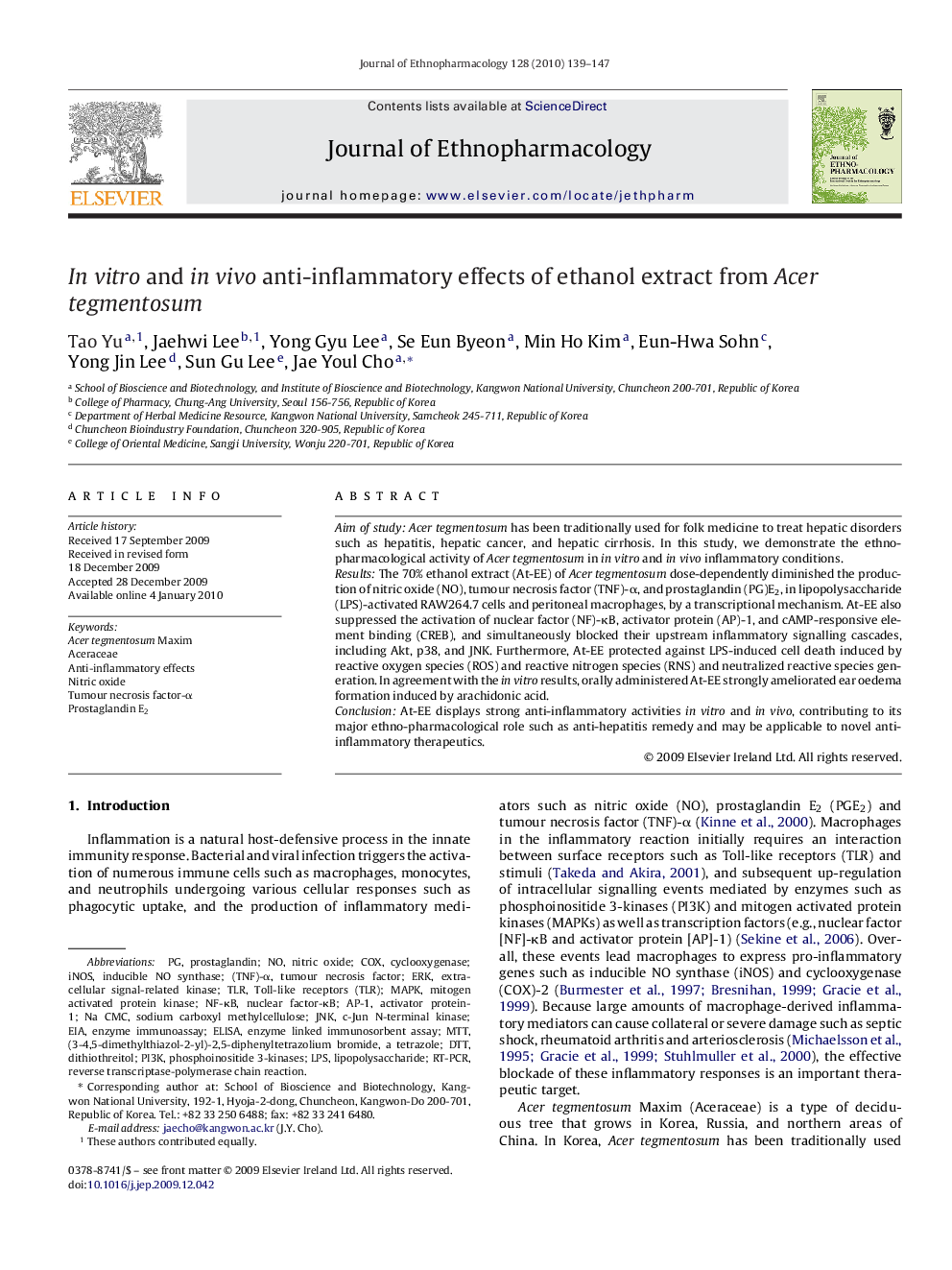| Article ID | Journal | Published Year | Pages | File Type |
|---|---|---|---|---|
| 2546645 | Journal of Ethnopharmacology | 2010 | 9 Pages |
Aim of studyAcer tegmentosum has been traditionally used for folk medicine to treat hepatic disorders such as hepatitis, hepatic cancer, and hepatic cirrhosis. In this study, we demonstrate the ethno-pharmacological activity of Acer tegmentosum in in vitro and in vivo inflammatory conditions.ResultsThe 70% ethanol extract (At-EE) of Acer tegmentosum dose-dependently diminished the production of nitric oxide (NO), tumour necrosis factor (TNF)-α, and prostaglandin (PG)E2, in lipopolysaccharide (LPS)-activated RAW264.7 cells and peritoneal macrophages, by a transcriptional mechanism. At-EE also suppressed the activation of nuclear factor (NF)-κB, activator protein (AP)-1, and cAMP-responsive element binding (CREB), and simultaneously blocked their upstream inflammatory signalling cascades, including Akt, p38, and JNK. Furthermore, At-EE protected against LPS-induced cell death induced by reactive oxygen species (ROS) and reactive nitrogen species (RNS) and neutralized reactive species generation. In agreement with the in vitro results, orally administered At-EE strongly ameliorated ear oedema formation induced by arachidonic acid.ConclusionAt-EE displays strong anti-inflammatory activities in vitro and in vivo, contributing to its major ethno-pharmacological role such as anti-hepatitis remedy and may be applicable to novel anti-inflammatory therapeutics.
Graphical abstractAt-EE displays strong anti-inflammatory activities in vivo, contributing to its major ethno-pharmacological role such as anti-hepatitis remedy and may be applicable to novel anti-inflammatory therapeutics.Figure optionsDownload full-size imageDownload as PowerPoint slide
